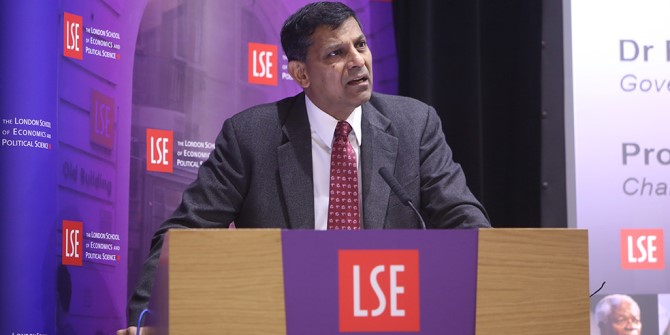LSE’s Dr Adnan Naseemullah argues that the Indian state has been largely ineffective as a developmental actor in the economy.
My current book manuscript – and a presentation on 30 January at the King’s India Institute – focuses on contemporary industrial development in a new era of drastically constricted state capacity. I examine this question from the point of view of the manufacturing firm, focusing on an empirical puzzle: India’s economy has grown phenomenally over the last decade, and this growth has at least in part been due to industrial development.
And yet, the Indian state has been largely ineffective as a developmental actor in the economy. Agencies of the Indian government have proved unable to regulate markets effectively, provide a predictable macroeconomic environment within which to invest, manage capital-labour relations, or advocate and mediate effectively on behalf of Indian industry to world markets. From all of what we know about the necessity of state intervention in the economy for effective industrialization, current successes in manufacturing should not be possible.
To answer this puzzle, I make two closely related claims based on historical research and in-depth interviews with over 250 industrialists throughout India and Pakistan. First, I describe the ways in which the state structured industrial production in such a way that provided certainty for private-sector investment in the first three decades after independence. Both domestic and international political dynamics in the 1970s and 1980s, however, forced the state’s withdrawal from governing industrialisation, thus creating an environment of ‘endemic uncertainty’ for manufacturing firms.
Second, I argue that faced with this environment, Indian firms are compelled to ‘govern themselves.’ In order to increase the predictability of investment, firms invest in structured networks of long-term relationships with other industrial actors: other firms, workers, financiers, agents of the international economy. As a result, firms have been able to regain some certainty for investment and thus organise production over the long term, but at the cost of national coherence around a model of Indian capitalism.
These findings touch on deep implications for the future of the Indian state. In response to a marked decrease in the state’s presence and effectiveness in many arenas, groups in Indian society – including but not limited to manufacturers – are internally divided on whether to respond by renewing investments in the power and autonomy of formal institutions, or by expanding the private sphere to include ever larger areas of public life. This tension stands behind many ongoing conflicts in Indian politics, but the rise to power of previously marginalised groups committed to personal networks as a source of advancement suggests the political limits to re-strengthening the state.
Dr. Adnan (Dann) Naseemullah is LSE Fellow in Comparative Politics at the London School of Economics. He received his PhD at the University of California, Berkeley in 2010. His research focuses on the political economy of industrial development, state formation and state capacity in South Asia.







